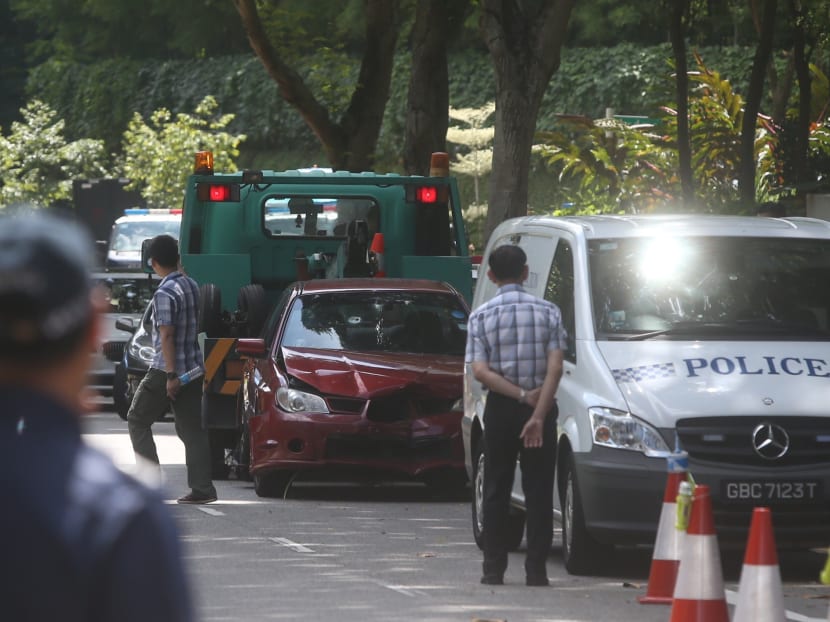Suspect shot as he posed danger, say ex-policemen
SINGAPORE — Opening fire at a suspect is not part of police protocol for roadblocks, and the reason that Mohamed Taufik Zahar was shot dead by officers early on Sunday was that he had posed a danger to the law enforcers, two former police officers told TODAY.

The car involved in the shooting incident near Shangri-La Hotel on May 31, 2015. Photo: Ooi Boon Keong
SINGAPORE — Opening fire at a suspect is not part of police protocol for roadblocks, and the reason that Mohamed Taufik Zahar was shot dead by officers early on Sunday was that he had posed a danger to the law enforcers, two former police officers told TODAY.
“The most the police can do is give chase and try to bring (suspects) into custody. Use of deadly force or opening fire is not an option in (roadblock breaches),” said a former officer who left the Singapore Police Force a decade ago.
However, officers would be justified in using deadly force in Sunday’s incident if a police officer’s life were in danger. That the incident took place near Shangri-La Hotel, where a high-level security summit was being hosted, is secondary, said the former police officers.
The police had said in a statement that “officers fired at the vehicle to stop it from causing harm to others and from proceeding further”.
The incident occurred at about 4.36am after the red Subaru Impreza driven by Mohamed Taufik, with two passengers, suddenly accelerated when the police were questioning the trio at a checkpoint along Ardmore Park.
The police declined to comment on what warnings were given to the driver, or its standard operating procedures for handling those who run police checks, as investigations are ongoing. The car came to a stop about 200m from the checkpoint.
The former police officers said checks could be more extensive at roadblocks for high-security events than for routine roadblocks, and the structure of the checkpoint could be more comprehensive, with more blockages, such that motorists would find it more difficult to speed off.
They added that those who try to do so could have committed various offences ranging from driving under influence, immigration violations, failure to attend court or drug-related misdeeds. Such occurrences are rare, partly because “Singapore is small, so there’s nowhere really to run”, said one of the former officers, who estimated that he was involved in about 100 roadblock operations.






